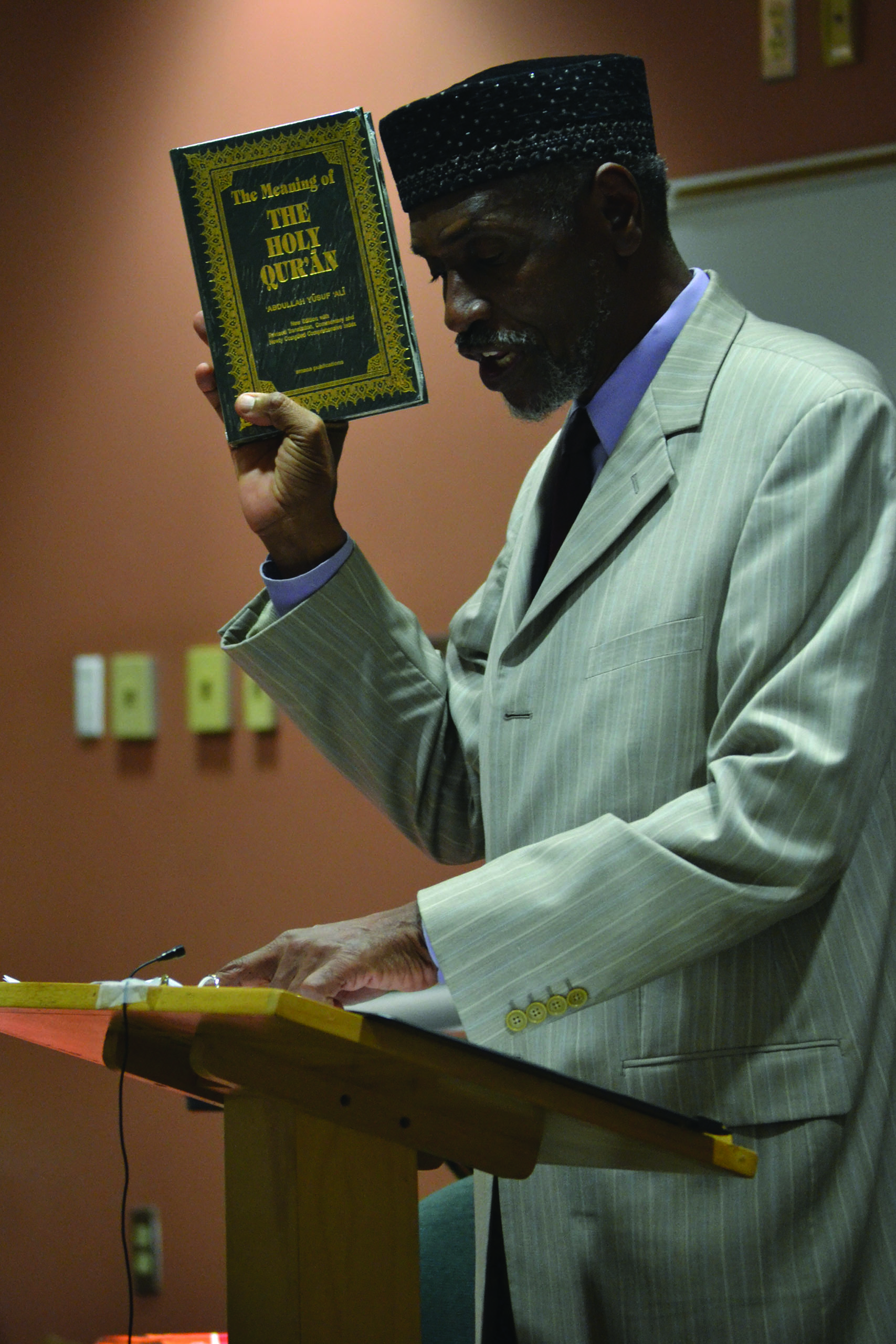
When Omar Shaheed decided to become a Muslim, he ran home to tell his mom he was doing it all the way, including no pork.
“She told me, ‘Well, all we’ve got tonight is porkchops,’” Shaheed said, “and I said, ‘Well then I’ll start tomorrow.’”
Such light-hearted anecdotes defined Shaheed’s Cultural Life Program (CLP) presentation “Black Muslim in America,” held Mon., Nov. 9. The talk was sponsored by the NAACP and Muslim Student Association (MSA).
Born Johnny Martin, Shaheed grew up in a large family of sharecroppers in Trenton, S.C. Like many other African-Americans in the South, he experienced a culture of segregation and racism, manifested as early as middle school when white parents in his neighborhood refused to let their sons play with Shaheed and his brothers. He and his family did not try to change this system, choosing security over conflict.
“We knew how to play that role and stay in our place,” Shaheed said.
When he entered the Navy, though, a number of trips opened him up to different ways of thinking about his race. While stationed in San Francisco, Shaheed found that the white “hippies” were “different from Southern whites and very friendly.”
But what really shifted his mindset were his interactions with the people he met while in the Asian Pacific. Though Shaheed still felt very different, much like he did in the states, these people made him feel welcome.
“They used to call me ‘soul brother,’” he said. “I had never heard that before.”
The self-acceptance he and other crewmembers felt inspired them to start an African-American studies class on the ship. As he became more aware of his racial history, he began to become more and more uncomfortable with the Christianity he grew up with.
“I saw Christianity as a white religion,” Shaheed said. “Jesus was white, angels were white and all the people at the last supper were white.”
The oppression Shaheed grew up with still existed when he returned home, and he was even denied a meal at a S.C. truck stop in Navy garb. A short while later, he decided to take a trip to NYC to see his sister, and by chance happened to walk into a mosque in which Elijah Muhammad, founder of the Nation of Islam, was speaking.
Shaheed found that Muhammad’s message made him feel like he deserved a chance in America. He took the Islamic witness of faith (shahada) not long after that experience, and a few years later changed his name to Omar Shaheed, though not everyone respected that wish.
“I went home and told my mom to call me Omar Shaheed,” he said, “and she said, ‘Okay, Johnny.’”
He currently serves as the imam of Masjid al-Salaam in Eau Claire, S.C. A few members from his mosque attended his CLP talk.
Fareeha Abrar, president of MSA, believes that the talk introduced the students to an intersectionality of race and religion that many do not often consider.
“His account is unique and provides students with the opportunity to understand our country’s past and the spirit of Islam through a different lens,” she said.
Abrar hopes that students come away with a recognition of Islam in a larger social context as a religion that aims to serve all people equally.
“Islam is an inclusive religion that recognizes the rights of all people, regardless of race, ethnicity, class or gender,” she said. “We all belong to the same ummah, or community, and Islam denounces any display or recognition of superiority.”